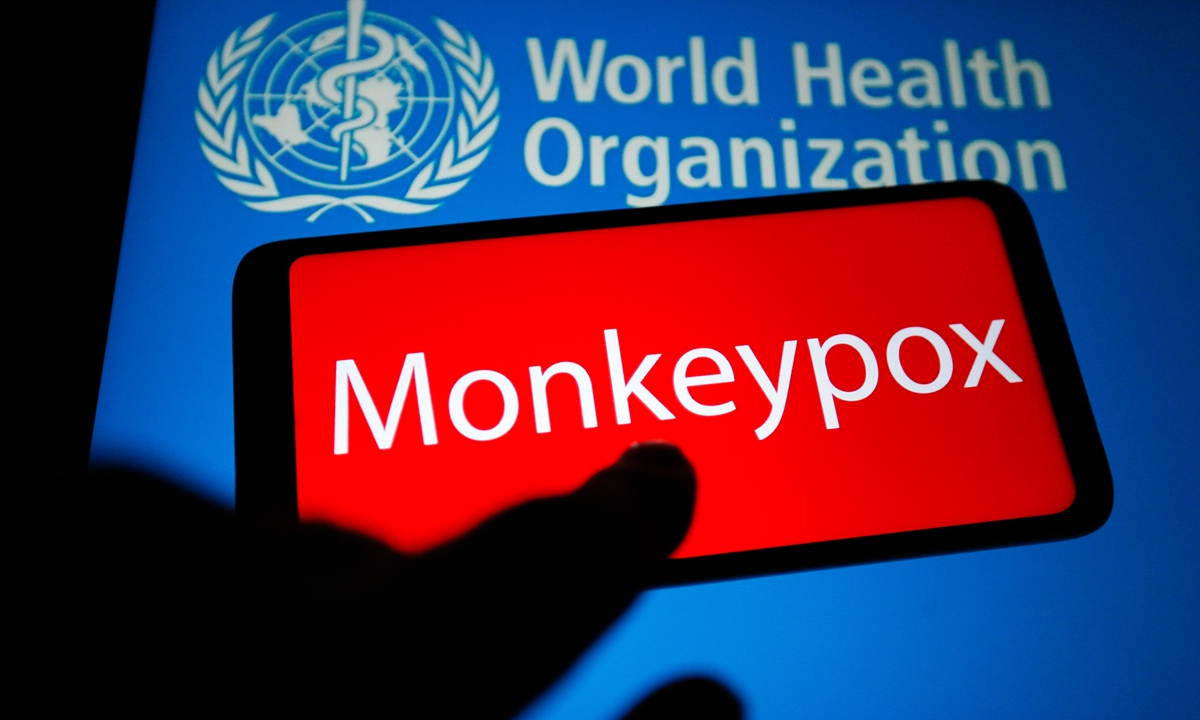Monkeypox not mutated: WHO
2024-10-16 21:28:08本站

Monkeypox Photo: VCG
The World Health Organization does not have evidence that the monkeypox virus has mutated, a senior executive at the UN agency said on Monday, noting the infectious disease that has been endemic in west and central Africa has tended not to change.Rosamund Lewis, head of the smallpox secretariat that is part of the WHO Emergencies Programme, told a briefing that mutations tended to be typically lower with this virus, although genome sequencing of cases will help inform understanding of the current outbreak.
Health experts watch for concerning mutations that could make a virus more easily transmissible or severe.
Over 100 suspected and confirmed cases in a recent outbreak in Europe and North America have not been severe, said Maria van Kerkhove, the WHO's emerging diseases and zoonosis lead and technical lead on COVID-19.
"This is a containable situation," particularly in Europe, she said.
"But we can't take our eye off the ball with what's happening in Africa, in countries where it's endemic."
The outbreaks are atypical, according to the WHO, occurring in countries where the virus does not regularly circulate. Scientists are seeking to understand the origin of the cases and whether anything about the virus has changed.
The WHO is asking dermatology and primary healthcare clinics, as well as sexual health clinics, to be alert to potential cases.
Many - but not all - of the people who have been diagnosed in the current monkeypox outbreak have been men who have sex with men (MSM).
The officials said it was too early to say why, but this demographic may be likely to seek medical advice or have access to sexual health screening.
Monkeypox does not usually spread easily between people, but it can be passed through close person-to-person contact or contact with items used by a person who has monkeypox, such as clothes, bedding or utensils.
"We know that MSM if they do spot an unusual rash, they're likely to want to get it sorted out quite quickly," said Andy Seale, strategies adviser at the Department of Global HIV, Hepatitis and STI Programmes at the WHO. "The fact they've been proactive in responding to unusual symptoms might be part of the story. This will become clearer in the weeks and days to come."
Van Kerkhove said she expected more cases to be identified as surveillance expands.
Asked whether the early findings may fuel discrimination, Seale said: "There are ways we can work with communities to learn from decades of experience around tackling stigma and discrimination with HIV. We want to apply those lessons learned to this experience."
Reuters
文章地址:http://mobile.dalian183.cn/html/394d798847.html (转载请注明出处)
免责声明:本文仅代表作者个人观点,与本网站无关。其原创性以及文中陈述文字和内容未经本站证实,对本文以及其中全部或者部分内容、文字的真实性、完整性、及时性本站不作任何保证或承诺,请读者仅作参考,并请自行核实相关内容。